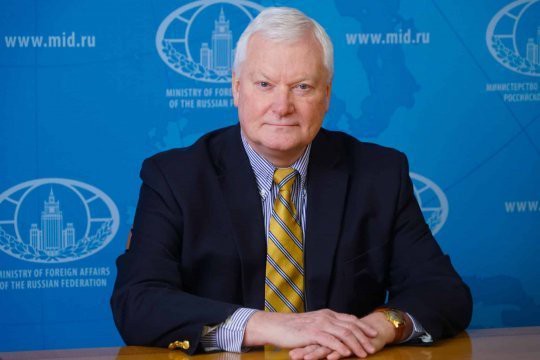Digital tools have become a lifeline for millions of people during the coronavirus pandemic. The Internet, which facilitates communication between people, is becoming increasingly open, but at the same time, it poses an enormous risk. As enterprises, businesses and government agencies transition to operating remotely, they are exposing their internal data. And the deeper humanity “dives” into the cyber sphere, the more we see virtual crime growing. An even more dangerous trend could emerge: increased terrorist activity in the information space. One strategic challenge that has grown in the current environment is the risk of interstate confrontation in the digital sphere, which cannot be contained on a local scale due to the cross-border nature of information and communication technologies (ICT), and the intertwining of national processes and lifestyles. All states, regardless of their political orientation and level of socioeconomic development, are vulnerable to acute global problems. COVID19 demonstrated the interdependence of the new challenges we face and confirmed the urgent need for interstate cooperation in the field of international information security (IIS). For our part, we consistently advocate establishing such cooperation in a professional and constructive manner. The lack of evidence and the political motivation of fake news is obvious. The sad thing is that it is not only our American partners who are taking these provocative actions. Disinformation campaigns, especially in the field of health care, are being used to manipulate public opinion. The COVID-19 pandemic has particularly highlighted the risks and consequences of malicious activity that exploits vulnerabilities at a time when societies are under great strain. Russia shares the opinion of a number of countries on the need to protect ICT infrastructure in the health care sector. We propose that states commit to refraining from attacks not only on medical facilities, but also on the critical information infrastructure of institutions providing vital public services in general – particularly in the fields of education, energy and transportation, as well as in the banking and financial spheres. We will work in this area at UN negotiating platforms on IIS: OEWG and GGE. We need facts, not the “high likelihood” that the German media so actively tout. In their absence, we resolutely reject the unfounded and highly politicized accusations of the involvement of Russian state agencies in the 2015 hacker attack on the German Bundestag. The digital age is our new reality; it does not exist in a vacuum. Human progress cannot be imagined without cyber technologies, the free exchange of data in the virtual space. Unfortunately, the number of challenges related to the illegal use of ICTs is growing every day. The situation in the world is sharply deteriorating. The greatest danger is that online incidents could lead to full-scale offline conflicts. Russia is calling for more effective international counterterrorism cooperation, especially in the digital age. The use of ICT by terrorists is a clear challenge to international peace and security stemming from the illegal use of these technologies. This is not just a criminal problem, it is also a political one. Such actions could violate the sovereignty of states and interfere in their domestic affairs.
read more in our Telegram-channel https://t.me/The_International_Affairs

 13:21 30.03.2021 •
13:21 30.03.2021 •























